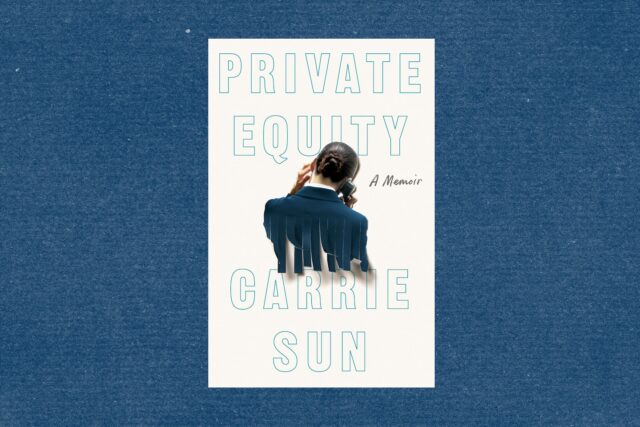A tension has emerged, however, in how audiences and critics receive these works. Do such depictions ultimately glorify or condemn the obscene levels of wealth and privilege enjoyed by those in the highest stratum of society? There are some — the more pedagogic among us, one might say — who would demand that a more explicit message be delivered through the layers of satire, absurdity and complexity: that billionaires are bad and should not be objects of either idolatry or aspiration.
Enter the view from below. You’d be hard-pressed to find many of the super rich willing to give the world an unfiltered account of what it’s like to be them, but the common people whose livelihoods revolve around those stars — the help, the henchmen, the hangers-on — may have no such qualms (barring any nondisclosure agreements). Through their eyes, we are granted a front-row seat to the glittering drama, grounded in the perspective of someone whose moral selling point is that they’re just like you or me.
“Private Equity,” a memoir by Fidelity-analyst-turned-MFA-graduate Carrie Sun, documents her years as a personal assistant to Boone Prescott, the founder of a hedge fund named Carbon. (Sun has given pseudonyms to both the fund and its founder.) Carbon is not just any hedge fund; it was described to Sun as “a rock star of a fund” and “the world’s hottest hedge fund,” and Boone as a “once-in-a-generation investor.” He is also — according to the headhunter who recruited Sun for the job — supposed to be “the nicest,” which is evidently odd enough for a billionaire, let alone a hedge fund guy, to be worth highlighting.
Money, like Sun herself in her role as Boone’s right hand, greases the wheels of all that makes Carbon — and by extension, the world — run. It’s what allows the company to maximize its returns, leveraging existing capital for access to information that helps to create more profits, in an accelerating feedback loop of success. It’s what enabled Sun to make every element of her boss’s life seamless, from lavish vacations to private jets to opulent office parties. It’s what Boone showered Sun with, in the form of compensation — her salary, bonus and the ultimate reward, investment in the fund itself — and perks: spa days, designer goods, shopping sprees, all-expenses-paid trips, private fitness classes. “Remember,” he told her early on, “money can solve nearly everything.”
With this one statement, Boone told Sun all she needed to know about him. She didn’t realize this initially, or at least she professed not to. After her first day of work, she was ready to declare herself “a believer again” in “the possibility of good billionaires.” The naiveté is striking, almost to the point of incredulity. It takes some mental gymnastics to buy that Sun, an otherwise smart and competent individual, could be so guileless that she earnestly believed at one point that working at Fidelity would allow her to find fulfillment “after helping the rest of America achieve their financial dreams,” and that working at Carbon would mean “serving humanity.”
And yet, why else would she stay in a job that would become hellish, demanding not just her time, attention and labor but her physical and emotional well-being? That’s the underlying question that animates the majority of the book, as the stresses of Sun’s role result in an injury, disordered eating, and the abandonment of any pursuit of writing or other personal joys. She deftly weaves together multiple threads — a childhood of love and abuse, the complications that come with being the child of Chinese immigrants, surviving and sublimating a trauma in college — that suggest a psychology of sorts, a blurry portrait of the kind of person who could willingly damage herself for such a job. But the individual paint strokes, although exquisitely and vividly rendered, never quite come together to form a convincing whole; there is something about the artist that remains elusive, as if, even in her own memoir, she’s reclaiming a modicum of the private peace she forfeited during her stint at Carbon.
Sun is much more forthcoming about why she finally decided to call it quits. “I used to think that Boone was driven by a love of the game” and “that making money was a side effect,” she writes about one moment of realization. “No. There was only money. Everything else was a side effect.” From there, the epiphanies come fast and furious, each more ham-fisted than the next in its grasping of class consciousness:
For billionaires, the distraction of others was the point. … Every delay — every stalemate, TBD, or indecision about billionaires’ lives, their management styles, their tax avoidances or excessive influence — was a win for them. They were the ones with the luxury of time to wait out storms in palatial shelters, while the rest of us, with no areas of refuge, watched the weather to stay alive.
As the world burns, as life gets more difficult for everyone outside the 1 percent, I worry that those in precarious situations (often women, people of color, and other marginalized and disadvantaged groups and, especially, their children) will develop an increased sense of alienation … an alienation that is then exacerbated and exploited, as Karl Marx predicted, by the system that is capitalism.
While I can appreciate a good Marx shout-out, there is a clumsiness to Sun’s invocation, as if, in the final scene of “Succession,” Cousin Greg had turned directly to the camera and urged the workers of the world to seize the means of production. As a political message, it may have its merits, but it falls flat as a conclusion to an otherwise absorbing memoir with enough damning details to stand on their own. Some lessons about the world don’t need to be taught so much as felt.
Jenny G. Zhang, a Book World contributing writer, is a senior culture editor at Slate.
Penguin Press. 339 pp. $29




